When the bullet hits the bone
Haven't had the time to start writing up Saturday at AnthrOhio. Was very, very busy this weekend going to amusement parks. So let me unload a mass of photographs on you. So let me close out Rye Playland and then we can get to more amusement park stuff.
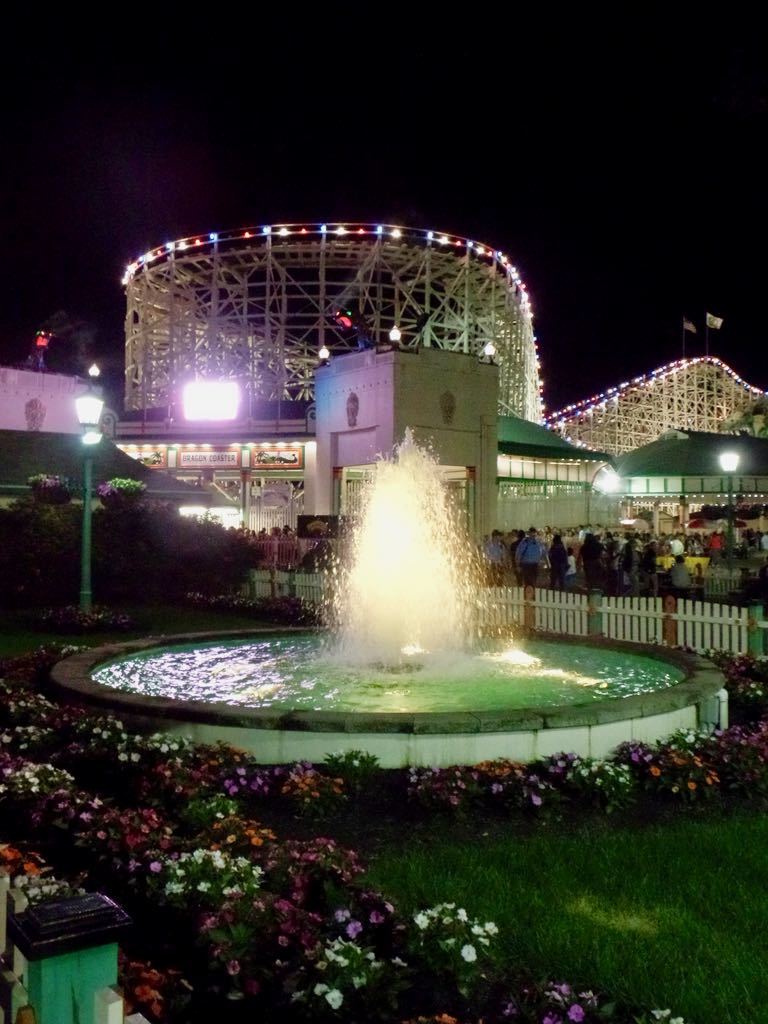
From the intersection of the main and side midways, looking at the fountain and the Dragon Coaster.
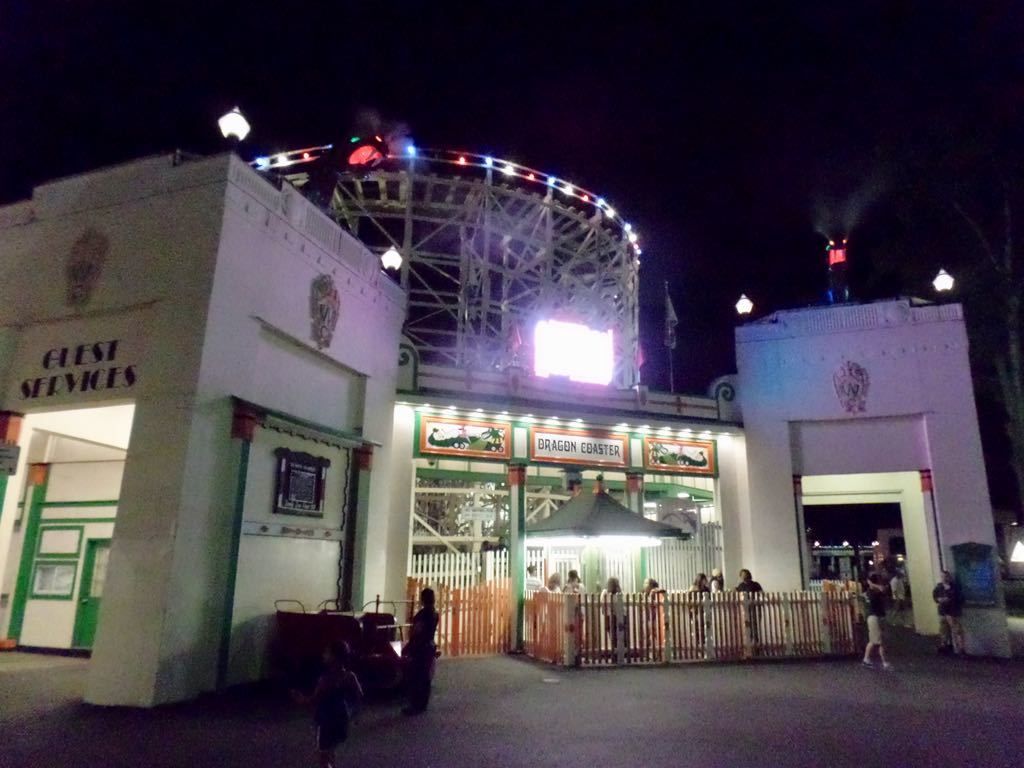
Dragon Coaster's entrance by night. There's another retired car on the left, there; two people are standing near it.
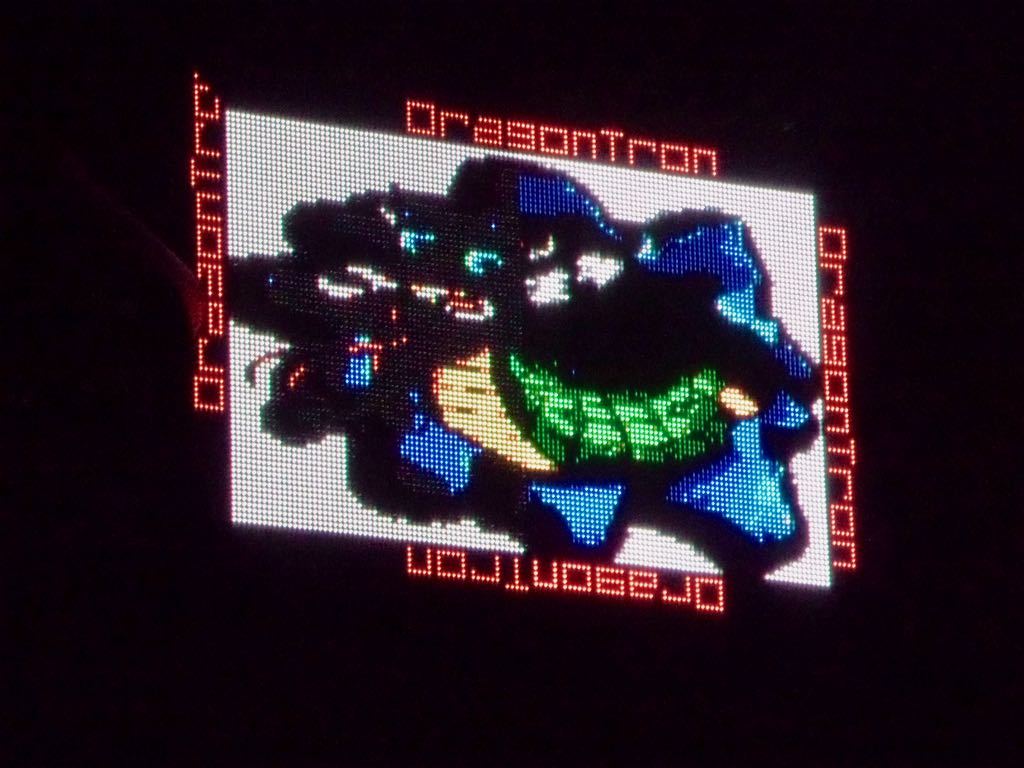
DragonTron I found inexplicably fascinating. Here I have to have caught it in-between picture updates or for some reason they're showing the retired icon for the Fort Wayne River Dragons or something.
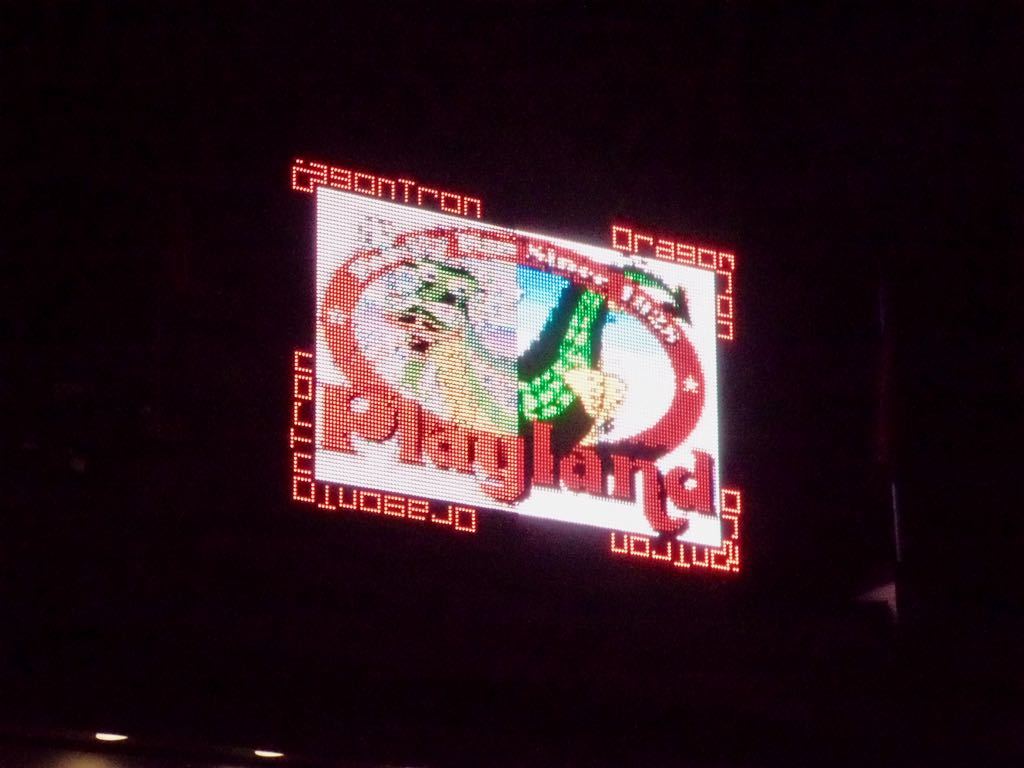
Except that here I definitely caught DragonTron in the middle of an image refresh cycle and that's just even more baffling, isn't it? I mean, what's the old and what's the new image in this context?
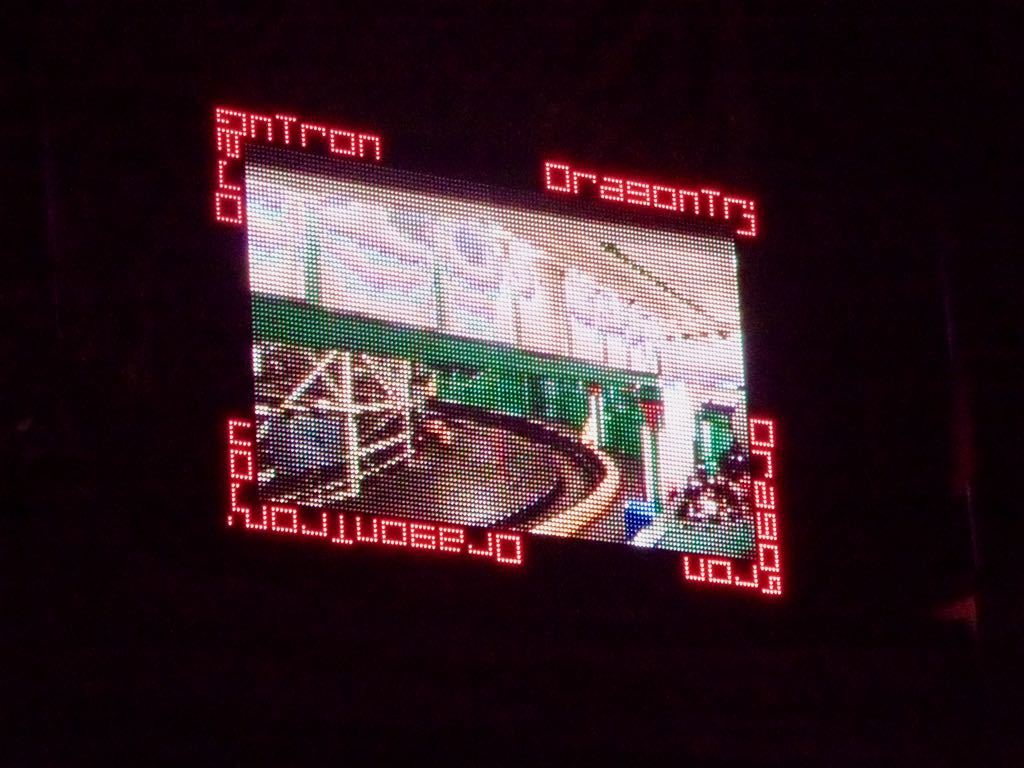
And now here's an interesting DragonTron shot. Is that a live view of the launch station? I couldn't work that out. It does look like the left half of the screen's a bit rougher than the right.
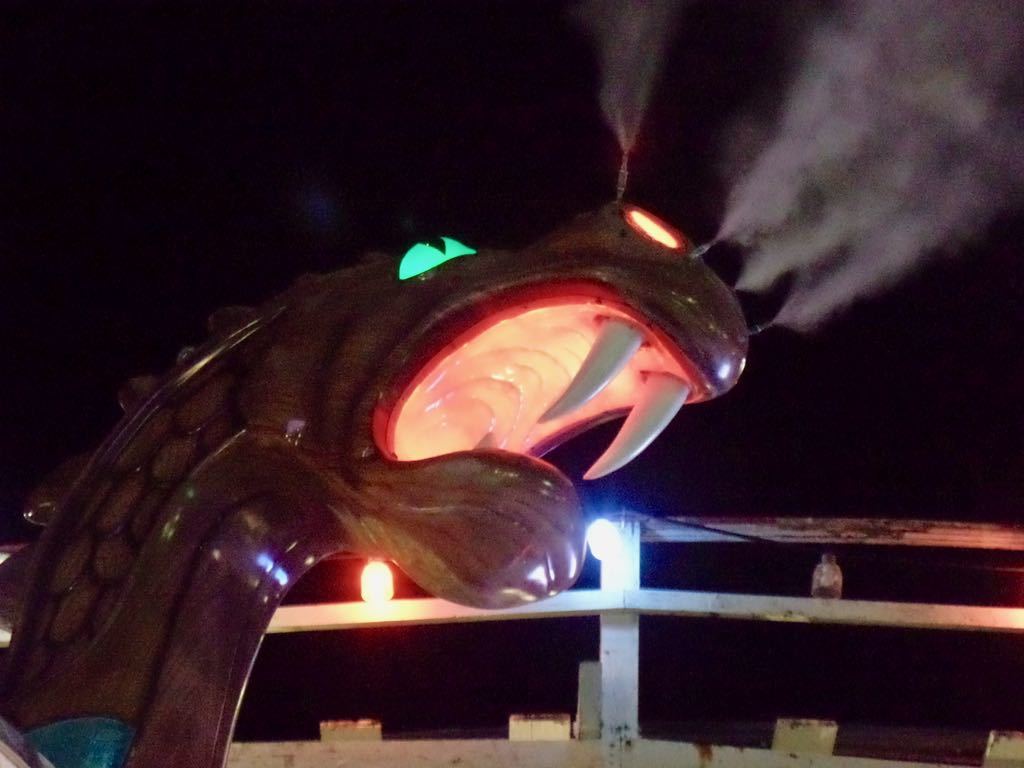
Dragon figurehead at Dragon Coaster breathing smoke by night. Doesn't that just look great?
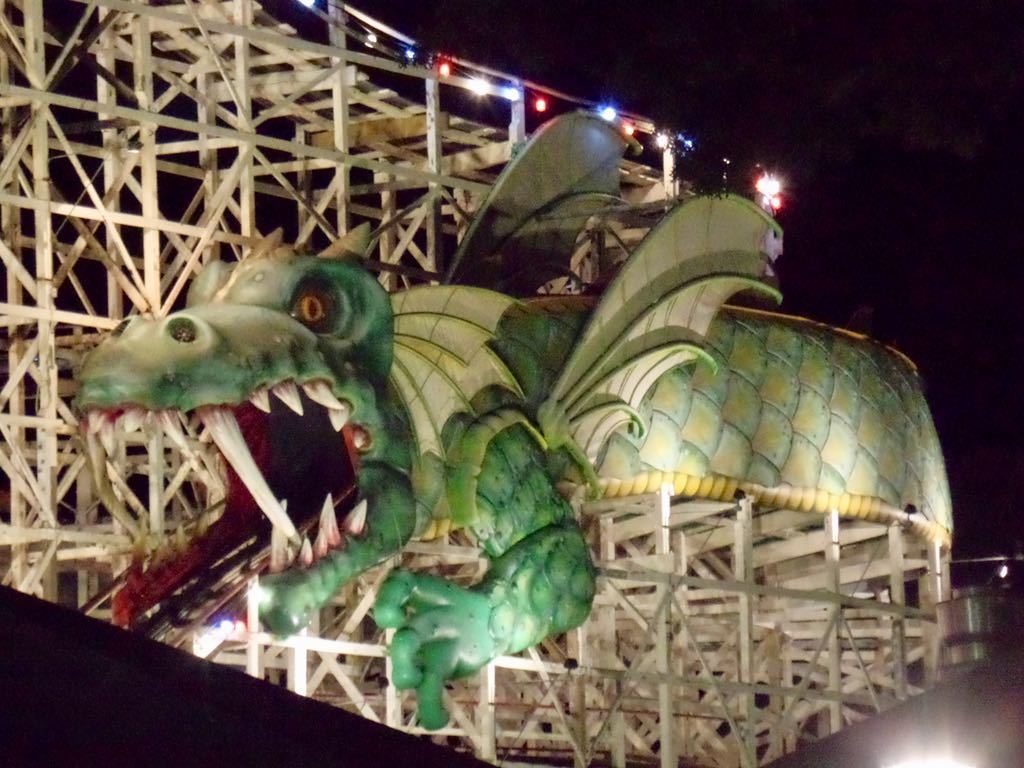
Dragon Coaster's nice big tunnel. Looks handsome, doesn't it? All nice and sweet and innocent and ...
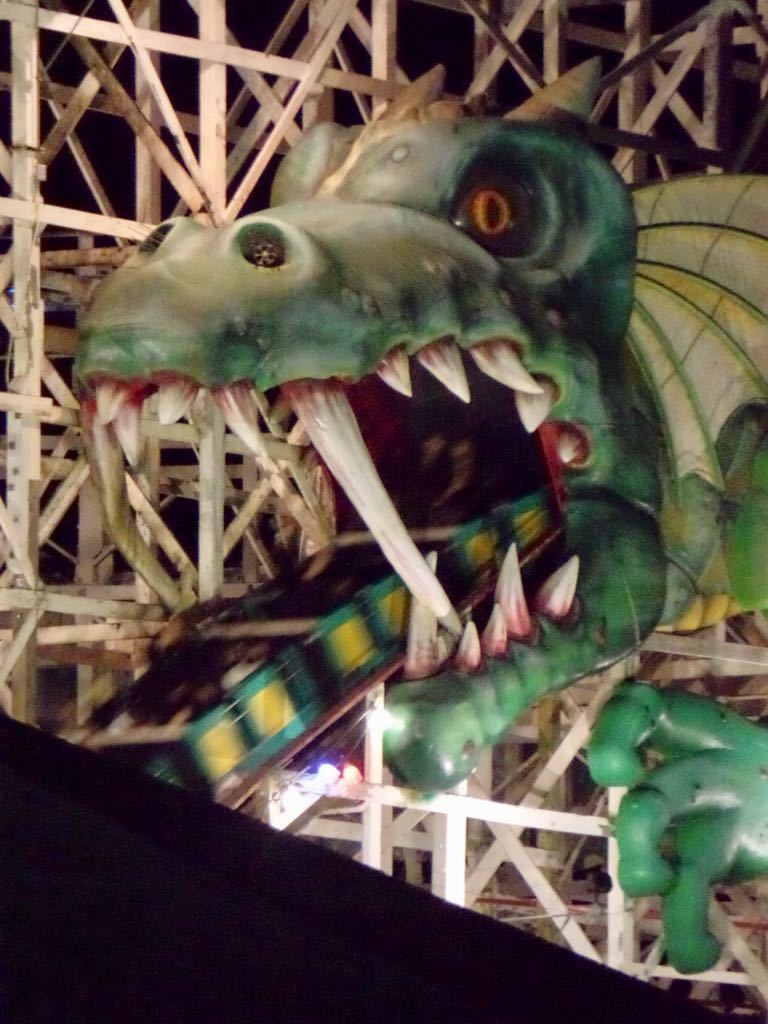
Gulp!
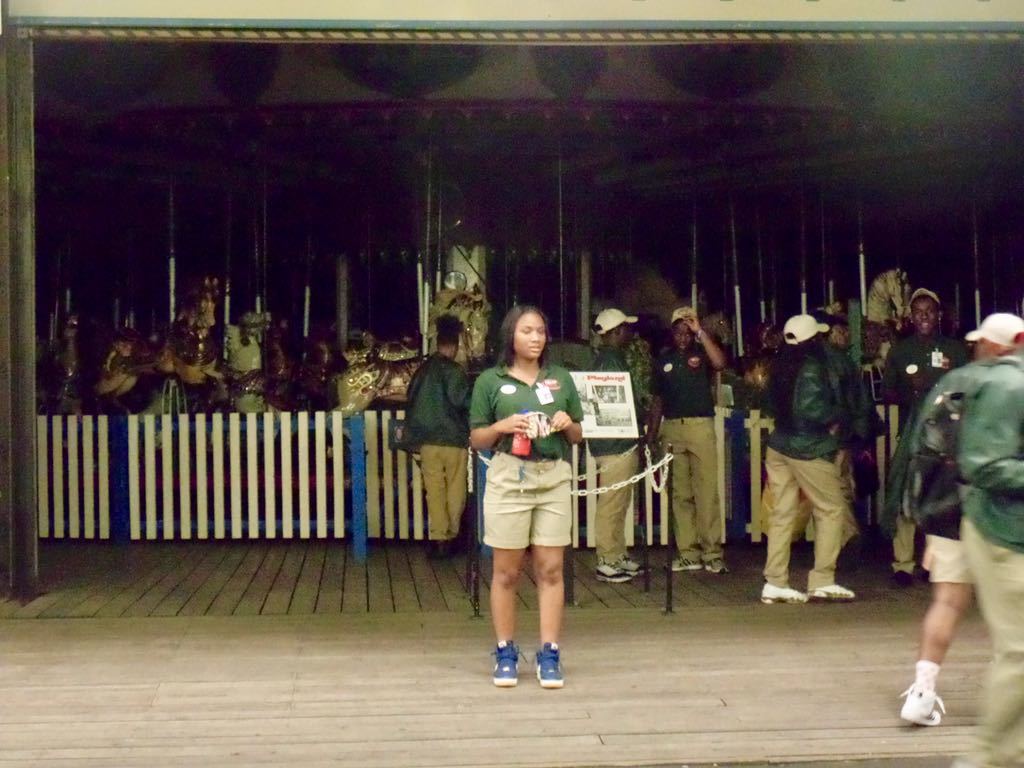
Night's over, alas. Operators from a bunch of rides milling toward, I assume, the employee area after the Grand Carousel's had its last ride of the night.
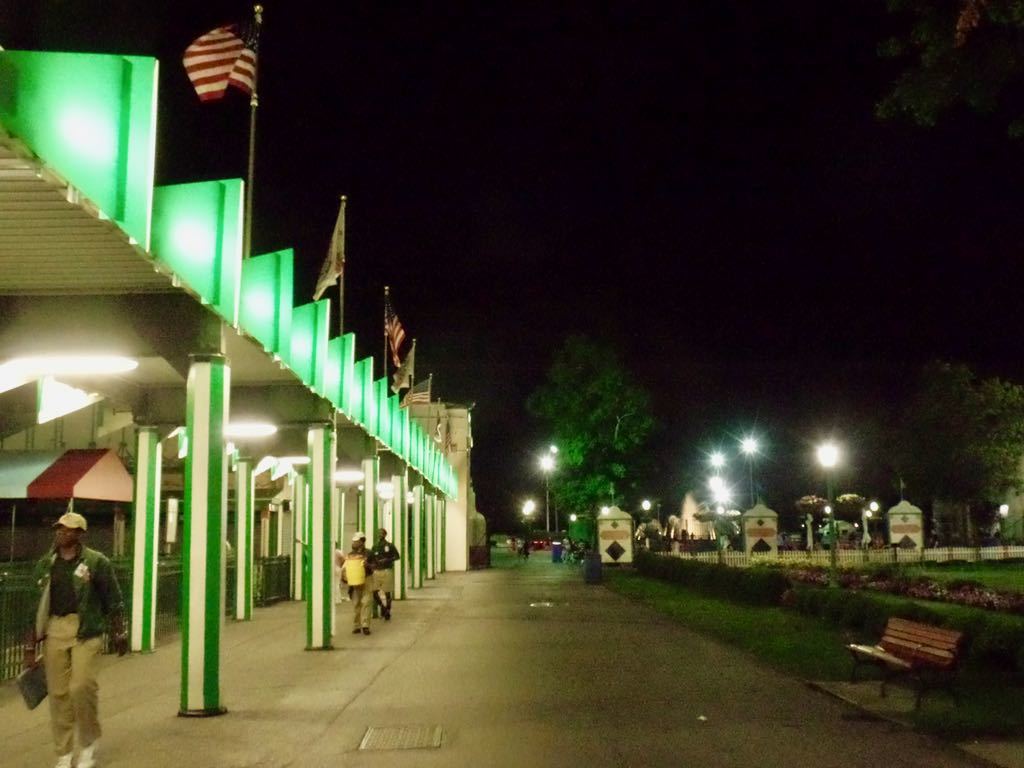
Main midway looking south and west, after the rides have closed down.

Fountains outside the park's main entrance, and beside the skating rink that's also part of the Rye Playland area, after the park's closed for the night.
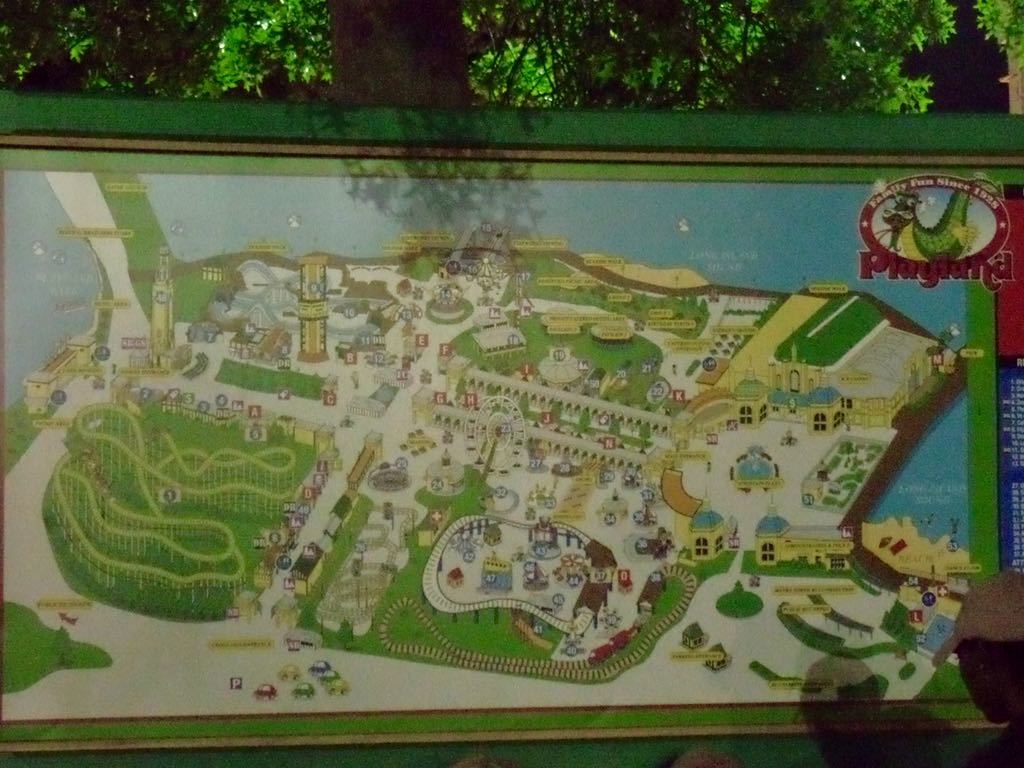
We failed to grab a park map! I'm embarrassed by that. But at least I got a picture of the map sign, which makes Dragon Coaster look rather longer and more twisty than it actually is.
Trivia: Through 1930 unemployment in the United States did not exceed nine percent; in the Depression of 1920-21 it averaged 11.9 percent. Source: An Empire of Wealth: The Epic History of American Economic Power, John Steele Gordon.
Currently Reading: Terrytoons: The Story Of Paul Terry and his Classic Cartoon Factory, W Gerald Hamonic. So on the one hand this is a plainly heavily-researched book about a figure and studio in animation history that was always there but that's always ignored. But it's also really sloppily written. Like, I come out of it knowing that Paul Terry, drafted into World War I, was put in the unit making instructional medical cartoons. What I can't tell you is whether he actually made one; the timeline of his induction and training and assignment and illness and discharge is so muddled and includes what looks like at least one typo somewhere that I don't know if he actually did any work or what it meant for his future animation career.